The Intersectionality of Maternal Substance Usage, Social Resource Inequities, and the Child Welfare System - (2025)
-
You must log in to register
- Non-member - $60
- Member - $35
- Student - $15
The child welfare system struggles to address the growing issue of maternal substance use, with rising rates of substance-related child removals, an overcrowded foster care system, and underfunded, non-specific social resources. Despite significant funding, systemic failures persist, and there is a lack of research on the interdependent relationships between substance-using mothers, their families, and the inequitable distribution of resources. This presentation critiques the outdated and harmful responses to maternal substance use in child welfare and emphasizes the need for evidence-based solutions and enhanced social resources. By focusing on preserving substance-affected families, it advocates for systemic reform to address chronic gaps in research, practice, and policy. Without these changes, inconsistent services and ineffective programming will continue to undermine the system's purpose.
Suggested Domain: Intervention
Credits: 1.0 PDU
Learning Objective(s):
1. Identify the reciprocally interdependent relationship between social resources and the child welfare system
2. Recognize how this relationship negatively affects contemporary child welfare practices, perpetuates the inequitable distribution of social resources, and allows for the systematic destruction of substance-affected families involuntarily involved with the child welfare system
3. Explain why indiscriminate social resources are vital to the preservation of substance-affected families and the success of child welfare
Please note: All webinar content and its certificate will expire on 02/19/2028 regardless of when it is purchased, accessed, or completed. At that point, contents will no longer be available in any form, including as an archive or as a PDU certificate. It is the responsibility of the learner to complete the contents and download and save the certificate for their records before 02/19/2028.
Melissa C. Wilkinson
Superintendent
Cole County Juvenile Court
Dr. Melissa Wilkinson has spent more than 14 years working in child welfare. Having spent more than a decade on the front line of child welfare and the past several years working in child welfare administration, she has a comprehensive understanding of the child welfare system. Academically, Dr. Wilkinson’s research has focused on the involuntary relationships between the child welfare system, substance-affected families, and social resources. In addition to child welfare reform, Dr. Wilkinson is dedicated to identifying and addressing gaps in social resources within her community.
Jon E. Beetem
Presiding Judge
Cole County Circuit Court
Judge Jon Beetem has spent 30+ years working with and presiding over child welfare dockets in central Missouri. Having spent more than 17 years as a Juvenile Court Judge and 15 years as a Guardian ad Litem, Judge Beetem’s experiences are expansive and diverse. His traditional judicial responsibilities included presiding over child maltreatment and delinquency cases, termination of parental rights, adoptions, and guardianships. Judge Beetem also presided over general dockets of criminal and civil cases. Throughout Judge Beetem’s tenure, he has facilitated and hosted numerous trainings designed to educate, develop, and empower child welfare professionals.
